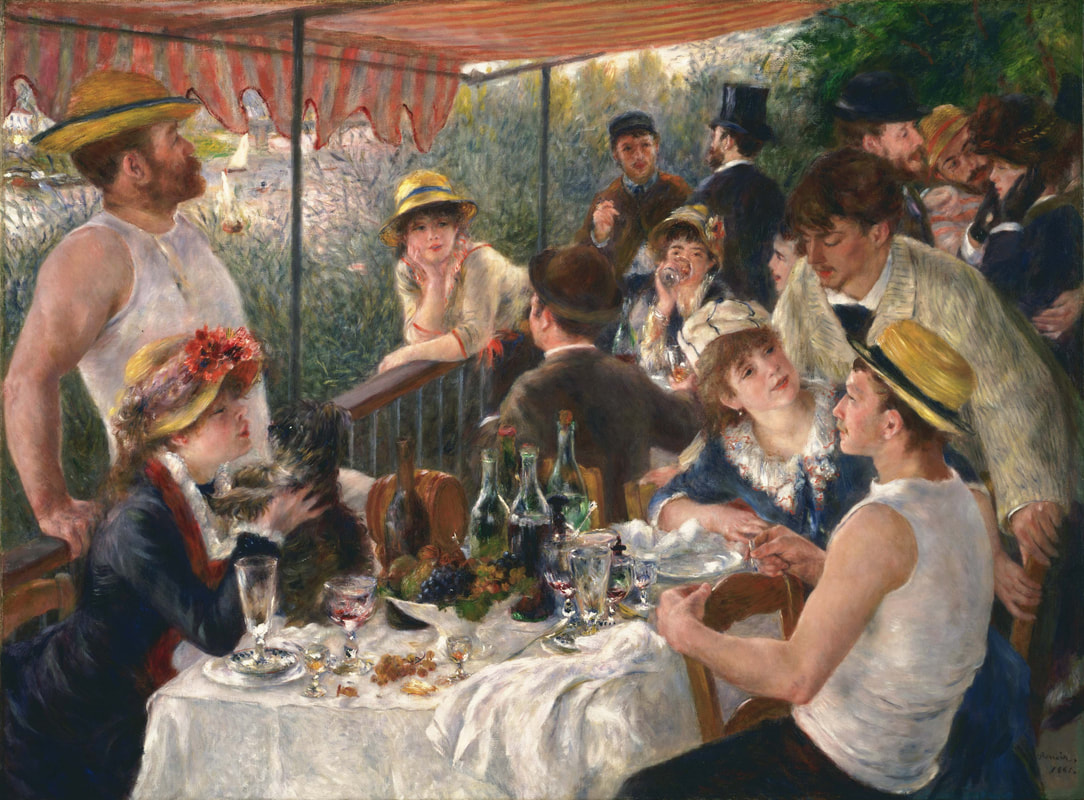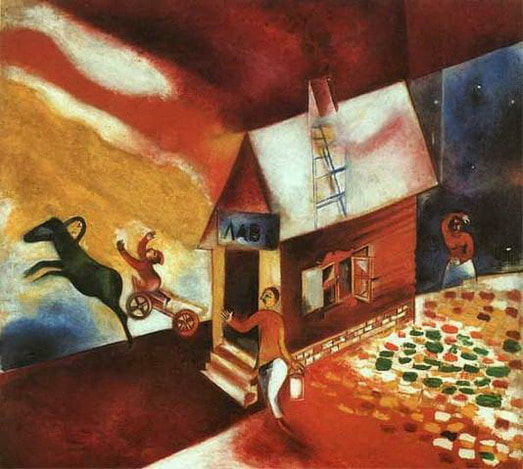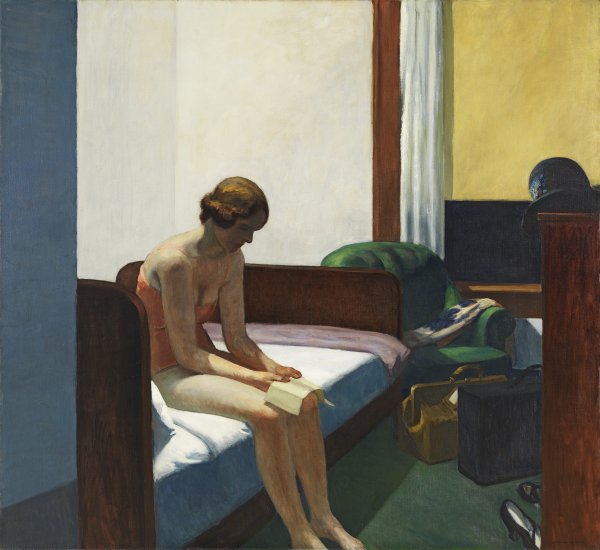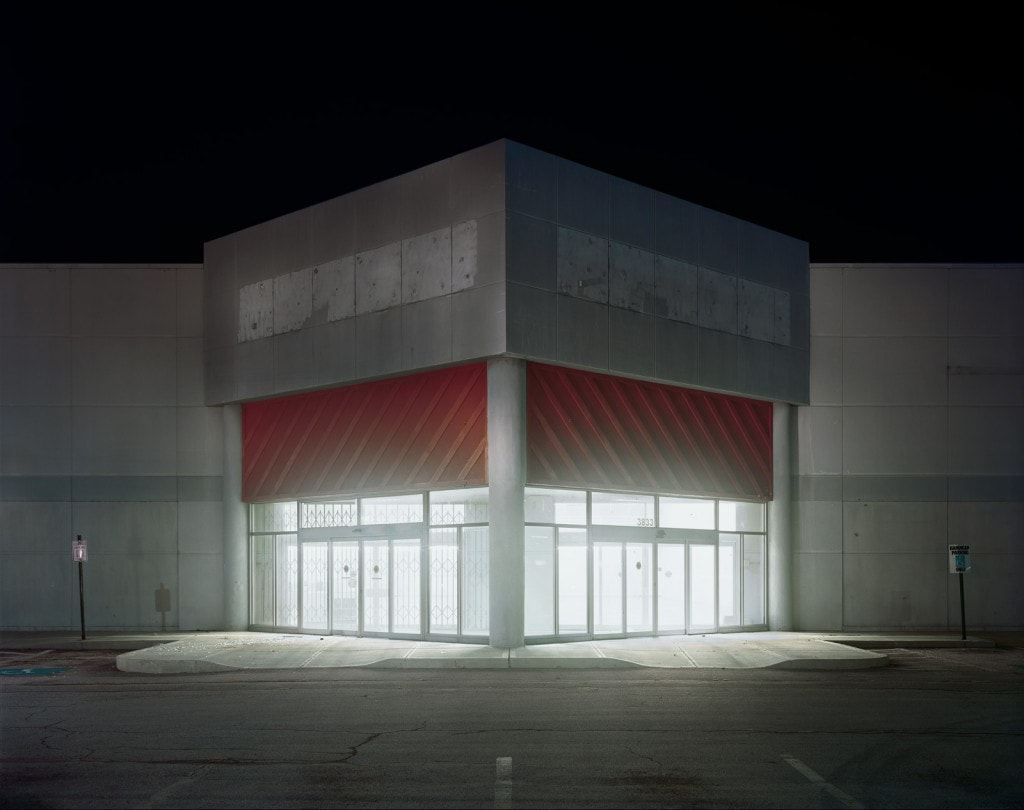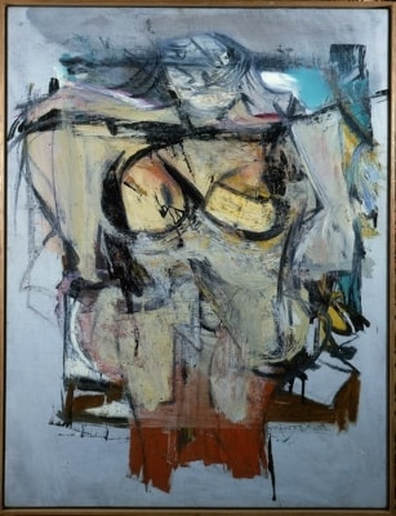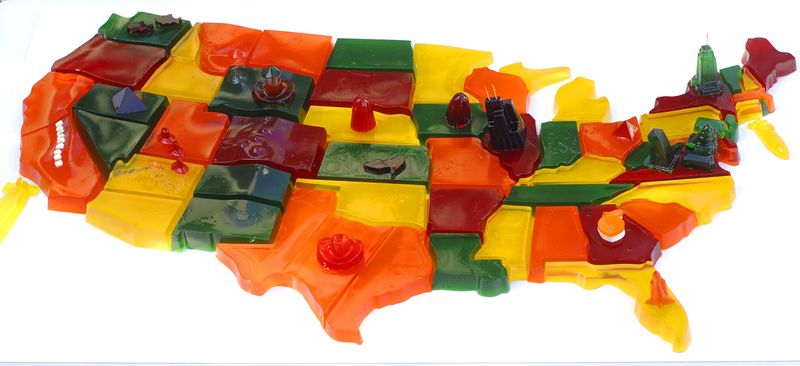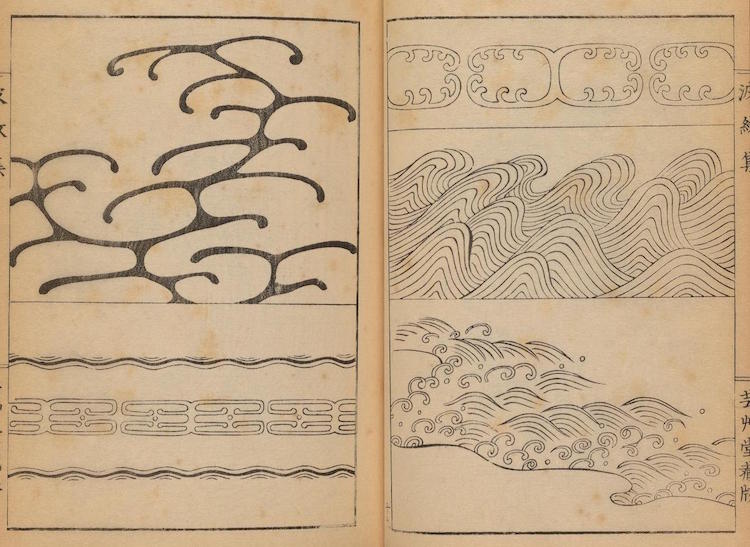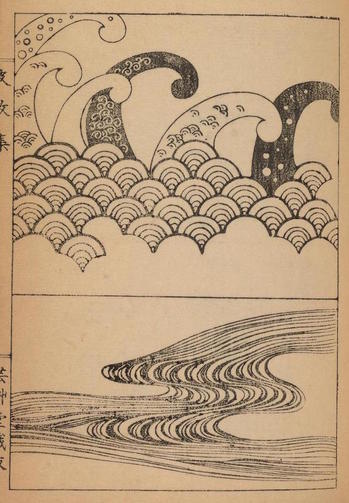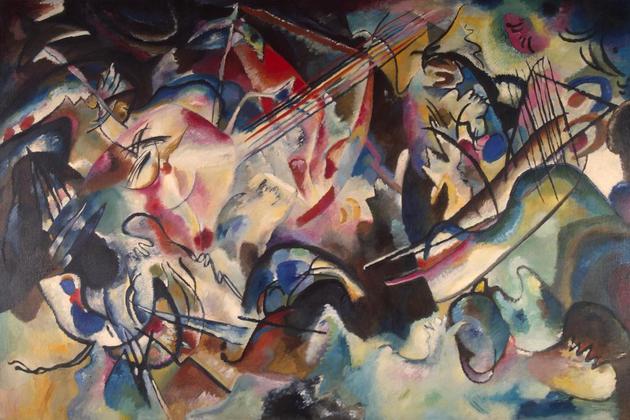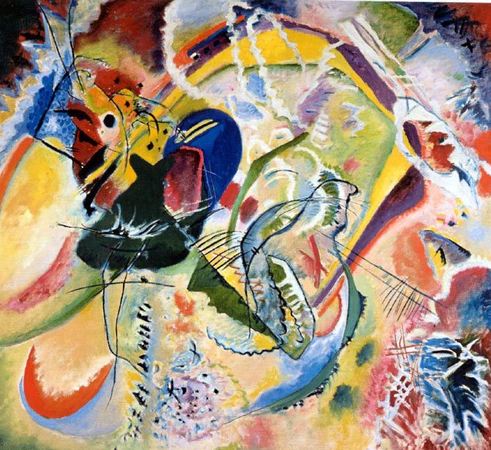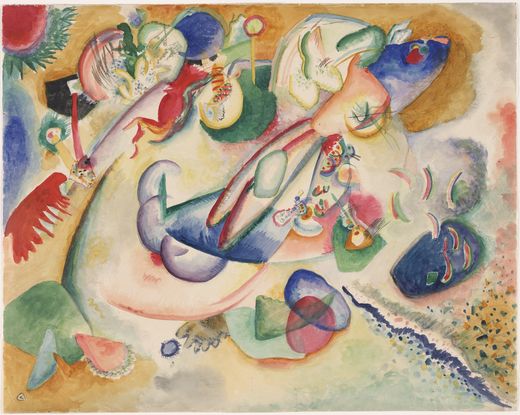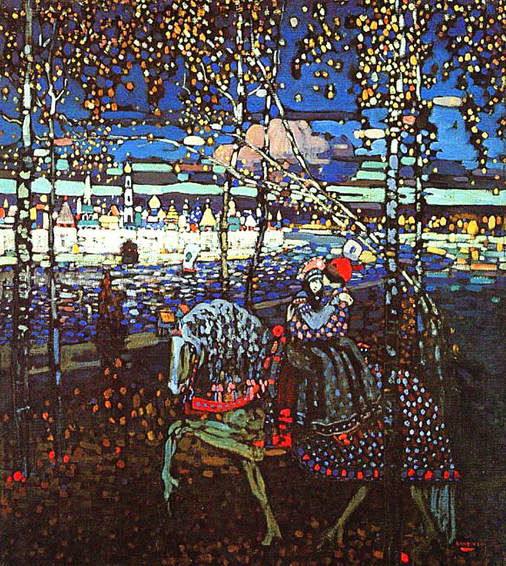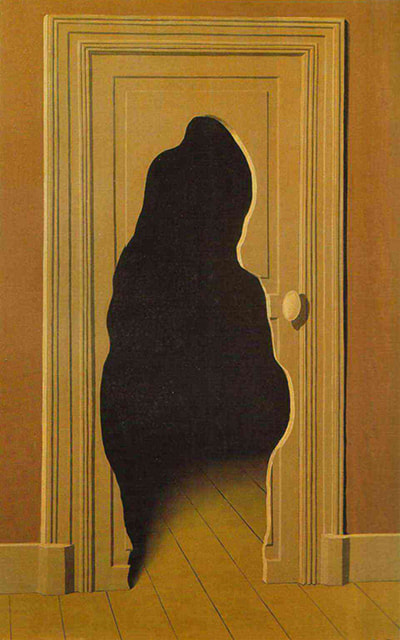|
Luncheon of the Boating Party
I blame his dealer for making a quick franc contracting his art to jigsaw manufacturers and chocolatiers his paintings have become too familiar and the soft fusings of figures with matter an affair of business rather than the quickness of the hand maybe his kin monetarised the old man (to fund their own endeavours) though as his fingers stiffened and the brush slackened Renoir may have thought of his friends upon a leaky boat (all now gone) and an artist who outlives his muse and his vigour still has bills to pay even genius needs a pension Gareth Writer-Davies Gareth Writer-Davies: Shortlisted for the Bridport Prize (2014 and 2017). Commended in the Prole Laureate Competition (2015) Prole Laureate for 2017. Commended in the Welsh Poetry Competition (2015) Highly Commended in 2017. His collection The Lover's Pinch (Arenig Press) published June, 2018.
0 Comments
The Flying Carriage
When he couldn’t see Vitebsk from his doorstep Chagall climbed a little post. When he needed more he did what his grandfather did to eat his carrots. He climbed up on the roof. Home was a place to be owned by wide watching . There is a fire at the heart of the scene in his painting coming from a tiny house that spills its colour like a highway for the eye to follow. A man walks it toward the doorstep. He rocks a white pail of water and maybe hears his wife calling from the dark edge toward a palette of stones that might carry her across to him. They are staying in the flaming frame but the carriage with the black horse lifting is leaving. The driver, dazzled to his task, flings his arms into an arc. A ladder leans against the roof of the house which makes a place for sitting and watching and showing what will happen. Judith Bowles Judith Bowles lives, writes and gardens in Washington D. C. She has an MFA from the American University where she taught creative writing . Her poetry book, The Gatherer, was published by WordTech Communication’s Turning Point in November of 2014. Her second book, Unlocatable Source, will be published by the same company in July of 2019. Two of her poems, “The Poet and the Pianist,” and “On First Reading Li Young Lee’s ‘Eating Together’”, were published by The Ekphrastic Review. Her website is judithbowles.com. Halfway Hotel
She has to leave this town, and right away. Half-dressed, she checks the schedule: there’s no train tonight, and so until the light of day, she’s stuck here in a mess she can’t explain. At least this hotel room is halfway neat-- the bed on which she perches is half-made, packed suitcases stand upright and discreet beside the single armchair where she’s laid her dress, her shoes wait side by side, she’s placed her hat atop the bureau—but the room is falsely tidy. What can’t be erased from vacant walls and pale limbs will consume her half-hearted resolve unless she makes her exit soon and unpacks her mistakes. Jean L. Kreiling Jean L. Kreiling is the author of two poetry collections, Arts & Letters & Love (2018) and The Truth in Dissonance (2014); her work has won the Able Muse Write Prize, the Great Lakes Commonwealth of Letters Sonnet Contest, and three New England Poetry Club prizes, among other honours. In her day job, she teaches music history at Bridgewater State University, and contributes articles on music and poetry to academic journals.
Landscape/ a sort of love note to Brian Ulrich land•scape: all the visible features of an area of countryside or land, often considered in terms of their aesthetic appeal; the distinctive features of a particular situation or intellectual activity. This is what I eventually began to remember: the vacancy. This is not godspace. Or metropolitanmusical. This is endless blocks of cement and asphalt—a space both occupied and uninhabited. It is where Ansel Adams would come to scold us: it is not beautiful, he’d say. Leaves me blank, he’d say. But he’s dead now, and I’d imagine the American landscape has changed quite a bit since then. wall wall wall cross street wall wall strip mall wall wall beach. stucco wall brick wall wall wall iron fence gated community wall wall. On the other side of that wall is another wall and behind that wall is a house where I used to live. The sign reads Deane Gardens, but we always called it The White Wall Neighborhood. On the other side of the side wall is the house where my neighbour used to live. Her son and I would catch butterflies and bees in a net. We fell in love and our parents thought it best we didn’t see each other anymore. Shortly after, I moved to another tract across town and never saw him again. wall wall strip mall wall Del Taco Albertsons Starbucks cross street wall iron gate wall wall beige wall wall gas station street light wall. I remember driving to the industrial area off Ellis Ave. and jumping off the roof of a furniture warehouse into a pit of foam. When we were older, there was so little to do besides drive around that most of us took up hard drugs and started stealing from our parents. wall wall wall gas station wall billboard wall wall Target Carl’s Jr. wall wall freeway wall. wall. palm tree. wall. What does Mr. Adams know about landscape anyway. wall wall palm tree wall apartment complex wall wall strip mall wall wall. wall. parking lot. wall. wall. wall. That is what I eventually began to remember: the vacancy. A space occupied but uninhabited. In the country perhaps your body, your flesh folds into the ground from laughter or fatigue. Perhaps your body beats against bark, and there is something in the stillness that evokes your mother. In the city perhaps your body, your flesh brushes against a stranger walking, talking, sweating, walking, and there is something in the noise that reminds you none of this matters. But here, here is where you drive for miles and never see god. Jenna Gallemore Jenna Gallemore lives in Portland, OR and is currently working toward her bachelor degrees in English and Spanish language and literature at Portland State University. Hostage
Like Woman-Ochre, 1955 cut from her frame then ignored just another hostage left to hang laundry left back of the bedroom door. Her hair swept up her throat slashed with shadow her thighs bloodied. Those brutal hands reaching for her. De Kooning, her first ransomer, then passed among them. Even the museum questions her. After more than 30 years, we are not so sure. Is she armed? Was she always winged & masked? Is that a metal cod piece, a raised sword, the red between her ample thighs, a cape? Ann Dernier Ann Dernier is Managing Editor at Kore Press. Her collection, In the Fury (Grey Book Press 2015), was short-listed for the Robert Dana Poetry Prize at Anhinga Press and the Crab Orchard Series First Book Award in Poetry. You can read her poems inBurningword Literary Journal, Poppy Road Review, Autumnal: A Collection of Elegies, Threepenny Review, Weaving the Terrain Anthology: Dos Gatos Press, SWWIM.org, Rumble Fish Quarterly and elsewhere. She received an MFA from the Iowa Writer’s Workshop. More at anndernier.com. Eating Mr. MIMAL
In this gelatin map of the United States Mr. MIMAL (sounds like “Bible”) stands in mid-nation, mid-continent, facing east towards Lady Liberty, Ellis Island, Europe. Mr. MIMAL is a schoolkid’s mnemonic, his name spelling out the five states from Minnesota down to Louisiana. Iowans love Mr. MIMAL because we are the head. Bompas & Parr have given Mr. MIMAL a chameleon-like eye, a gelatin mountain that’s been planted here in enlightened Iowa. Why we can see so clearly here, so sharp. Mr. MIMAL seems none too smart though, à la B & P, Brittania’s jellymongers.co.uk. Green-skinned like the Hulk, with a lemon yellow chef’s hat, orange shirt, red shorts, humongous green bare feet with New Orleans for toe jam. Let us love and cherish our Jell-O Paul Bunyan, eat his mint green brain (studded surely with sprigs of crunchy shredded carrot). Let us bite and enjoy his luscious raspberry rear and jiggler trunk: burly Arkansas and Missouri. Let us celebrate our communion of collagen rendered from animal ligaments, tendons, bones. Let us sing the body MIMAL. Luxuriate in the squishy liquid explosion of MIMAL jelly against our teeth. Let our tongues lyricize the legend: Mr. MIMAL, our messiah. Vince Gotera Vince Gotera is a professor of English at the University of Northern Iowa, where he served as Editor of the North American Review (2000-2016). He is Editor of Star*Line, the print journal of the Science Fiction & Fantasy Poetry Association. Recent poems appeared in Altered Reality Magazine, Crab Orchard Review, Crooked Teeth Literary Magazine, Eleven Eleven, Voices de la Luna, and Eye to the Telescope. He blogs at The Man with the Blue Guitar <vincegotera.blogspot.com>. To Archive Experience
Everyone knows about snow’s granularity, the limits on how we can put it into words. The scientist may record the exact timbre of the wolf’s howl or coyote’s and still the hairs rise on our arms. Deep knowledge from the wild. I have stood on the cliff, dabbled my toe in surf, run through volcanic ash falling on the beach at high tide. Seen waves blown off course by the spins of winter storm winds. I do not know the words for all vagaries of tide and smack-down turbulence, the gentle laps of summer days where the sailboats bob on the lagoon. Or how tears overlap and add up one after another like rain on skylights. The patterns our fingers scroll in the pond or the frog makes diving under the lily pad. These I hold in my mind’s reservoir of what I have known and loved. Tricia Knoll Tricia Knoll is a Vermont poet whose second book of poetry Ocean's Laughter (Kelsay Books) focused on experiences in Manzanita, a small town on Oregon's north coast. Her most recent collection How I Learned To Be White recently received the Gold Prize for Poetry Book Category for Motivational Poetry in the Human Relations Indie Book Prize for 2018. Website: triciaknoll.com Spending the day with Kandinsky in the Guggenheim took my thoughts to many places. I saw Russian folk tales unfold from behind black wavy lines and strange geometric figures. I saw melodies spill out from splashes of vibrant colour. I could hear the words from the Book of Revelations speak, spiraling out from the shapes, some highly symmetric and recognizably geometric and others more organic and formless. Of course, I thought about sound and colour and synesthesia and wondered what he heard as that light from within ran from his hands to the canvas and his wordless ideas found form for us to experience. Then, I spent a week without Kandinsky, soaked in the latest news; refugees, Syria, Brexit, French elections, Catalonian independence, the transition of power in Washington, all the wars and conflicts, and then those "lesser" tragedies that all of us suffer. All the drama and hate that flew into my life without invitation flooded and washed away the beauty of Kandinsky. The real world seems insane, yet Kandinsky’s art makes complete sense. And, I am left standing on a 89th and 5th wondering, why can’t the world accept me for who I am? Why must I live as a guilt ridden social outcast and watch a world that exploits and takes and rarely gives back? Song #1 - Requiem Sing, mothers and fathers Sing hallelujah Sing praise to the lord Sing for your children as you convulse in grief and the tears flood from your eyes Sing, brothers and sisters for our hearts have been ripped from our breasts and humanity has again been demeaned as a hunger that feeds on innocence breeds fear, sows hate, and spreads Gog and Magog Sing, friends and neighbors as we share our wine and break our bread as we march in the streets while our sons and daughters weep as the white, the red, the black, and the pale ride over liberty as those that cry for vengeance wear the white robes of martyrdom Sing, all, to Gabriel Sing, so he may ask Peter to swing open the pearly gates to accept the unworthy, the unforgiven, the indigent souls for they are the ragged and the endured our beautiful blood baptized brethren Sing, for the world so our voices may give hope to the innocent and suffering so our song may be proof of the peace that seems impossible so our melodies may sooth the tears on the blood streaked faces for we fear not Abaddon nor the Whore of Babylon Sing, dear soldiers and your voices shall ring louder than all the guns than all the cannons than all the bombs than all the angry faces who want to destroy and conquer Sing, for the Love of God for even the seven trumpets cannot blare above a mother’s voice Singing woefully over her daughters grave Song #2 - Spiritual The plain middle c suspended in the cold air long persistent and echoing like the after-ring of a bell carried by the wind to the sea The plain middle c green in the spectra of sound a comforting and calming note like the leaves on the trees dancing in the wind to the songs of sparrows The plain middle c the note of promise and hope the laugh of a playing child a butterfly fluttering aimlessly a nectar nourished shining face in the air The plain middle c floats between the sky and the earth rests on father’s knee and on mother’s breast lies at the zenith where the sun is brightest and where the moon is fullest on a cool summer night It is the first note and the last note the note the wind whistles at your funeral as it rustles the leaves on the ground tangles the hair of your grieving daughter and flutters the preacher’s coattails It is the note between dark and light the note of Mary’s Tears sprinkled wildly among the headstones white dots on a green canvas in a field of grey and black shadows It is the note we hear at birth that repeats with three billion heartbeats as the stars arc across the night sky as the sun rises over the eastern ocean as the clouds gently float over a new day Song #3 - Capriccio When you hear pastel blue it leaves a little ringing in your ear like a lower tone clear glass bell ping’d by a soft rubber hammer color drifts and waves in modulation in a lower B flat a pure and cool tone with rising and decaying intensity yellow is counterpoint, a high tone that damps quickly and teases a fast and hard metallic sound that makes you yearn to hear the rest blue pastel overlapping the green on a red circle is a minor cord dramatic and disharmonious it is the penetration the violent moment that promises, but hasn’t yet fulfilled Will it lead to blue ecstasy or more yellow? orange is splashed everywhere more percussion than notes chains rattling, metal clanging against metal In places it is painful the forced penetration that won’t lead to anything but tears you are attracted and repulsed to see the orange, dark clouds screaming to hear their threatening war drumming you feel the heat from the sultry green draw you in you fill with desire and a terrified, hungry, anticipation there seems to be a balance is blue gentle or selfishly harsh will red form counterpoint, easing the pain or will yellow disappoint, causing dissonance there is no answer, the climax is illusive Overall, I am taken back to a memory of making adolescent love in the woods not far from a highway. Birds were chirping. The wind was rustling the leaves of the trees. Branches were clacking as they swayed. An empty bottle of cheap wine lay next to the blanket. In the distance, cars and trucks could be heard on the road as rumbling orange noise. Song #4 – Folk Dance a shimmering river swells behind the two lovers reflecting the universe Borodin floods the starlit ever-after playing from the blue and white on black a sparkling city lies by the river golden domes and shining spires reach to heaven in a cacophony of light it is deafeningly peaceful and there, I see Prince Igor, as Yaroslavna weeps clouds roll behind and above the light blue, pink, and black up into the night they voice an ancient spiritual song I can feel it, a long and breathless hymn meanwhile the couple ride in a lovers embrace as had Joseph and Mary in that far off place in a fairy-tale glow I hear evening birds sing sweeping over the lovers like a gentle breeze in the twilight, time and place had reached that brief magical moment When the air sparkles When the sky burns When the stars faintly pierce in the east then, the leaves on the birches reflect orange, red, and yellow and I hear darkness descend Perhaps they are Konchakovna and Vladimir slipping away to be alone Or could they be newly betrothed commoners returning from the feast for Ever-Virgin Mary? the proud mare, left leg raised, slowly ambles while dressed in celebratory blanket and bridle It reminds me of the Apolytikion in the Fourth tone sung rhythmically a cappella It is a stained glass melody in pigment and oil a toccata and fugue of brilliant colour radiating song kab kab writes, plays, and works in New York City and Long Island. https://plus.google.com/collection/wt0LRB 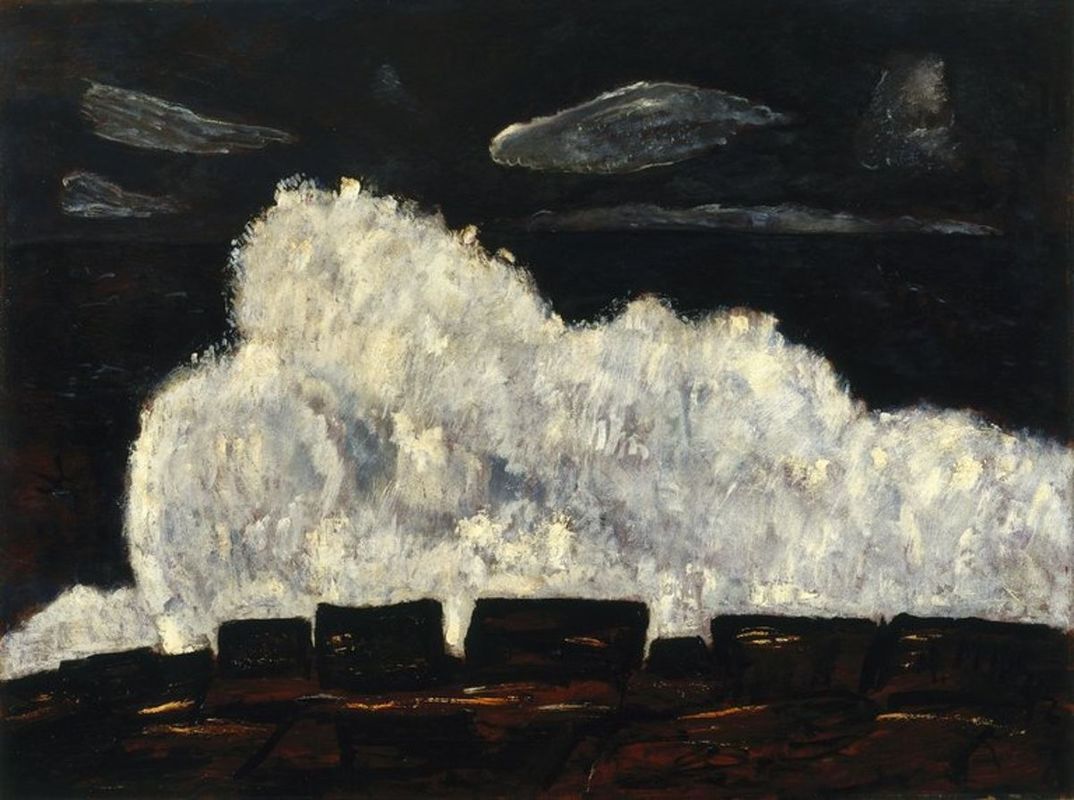 Evening Storm, Schoodic, Maine, by Marsden Hartley (USA). 1942. Evening Storm, Schoodic, Maine, by Marsden Hartley (USA). 1942. Still Life On the day his mother dies:
Black grains of sand snag the rugs and scratch the tops of his feet. They grind between his molars. Dry sea grass inflames his bare legs. It whips through, pulled from the ground by relentless gusts, capable of splicing even one grain of sand. He is left with a collage of paper cuts across his skin. He can see his veins throbbing underneath. He has to leave, to go somewhere beyond this. Giving up, he walks through the dry, low tide as the storm finally moves out. The damp air is slowing down. It makes him feel unclean. Salt grease stuck to his hair. He wonders: Have I done something wrong?
The foghorns are blowing out the steamers who have come too close to shore. The park may close early this year. It was a bad season for dogfish. The island is moving further out, floating into a black line scraped out between the ocean and the sky. M can see where the currents are taking them. They are the last rock before the horizon. Alone now, he will be pushed all the way across to another side. With her last words, she said to him, The skin we wear is all we have. Loie Rawding Loie Rawding is a writer and mixed media artist who grew up on the coast of Maine. She received her MFA from the University of Colorado where she completed her first hybrid novel, Tight Little Vocal Cords. Her work has been internationally recognized in SAND: Berlin's English Literary Journal, The Wanderer, Anamesa, The Thought Erotic, Map Literary, and Lemon Hound, among others. Presently, Loie lives in Nashville, Tennessee and is a Teaching Artist with The Porch Writers Collective. You can find her at www.loierawding.com. René Magritte’s The Unexpected Answer The way out or the way in might be a jagged hole that breaks through where you need to go. Despite the door you might simply have opened. Your advance cracks a passage unexpected into a darkness grim and oddly inviting. The floorboards carry you forward as if yours were an ordinary life, while the absence of light in the place that waits would seem to be horrific and comic all at once, like the life-and-death exits of Bugs Bunny and Road Runner that rely on impossibilities through which no nemesis could pass. Joseph Stanton Joseph Stanton is a professor of art history at the University of Hawaii at Manoa. He has published many books of ekphrastic poetry, with a new one scheduled in 2019. His work has appeared in The Ekphrastic Review, Poetry, Harvard Review, Image, New York Quarterly, and more. Over 500 of his poems have appeared in journals and anthologies. His awards include the Tony Quagliano International Poetry Award, the Ekphrasis Prize, the James Vaughan Poetry Award, the Ka Palapala Pookela Award for Excellence in Literature, and the Cades Award for Literature. Ekphrastic poetry was one of the central concerns of his doctoral research at New York University, and he conducts ekphrastic writing workshops in New York and Honolulu. For more information on Stanton's latest ekphrastic collection see: http://brickroadpoetrypress.com/order-books/things-seen-by-joseph-stanton |
The Ekphrastic Review
COOKIES/PRIVACY
This site uses cookies to deliver your best navigation experience this time and next. Continuing here means you consent to cookies. Thank you. Join us on Facebook:
July 2024
|
